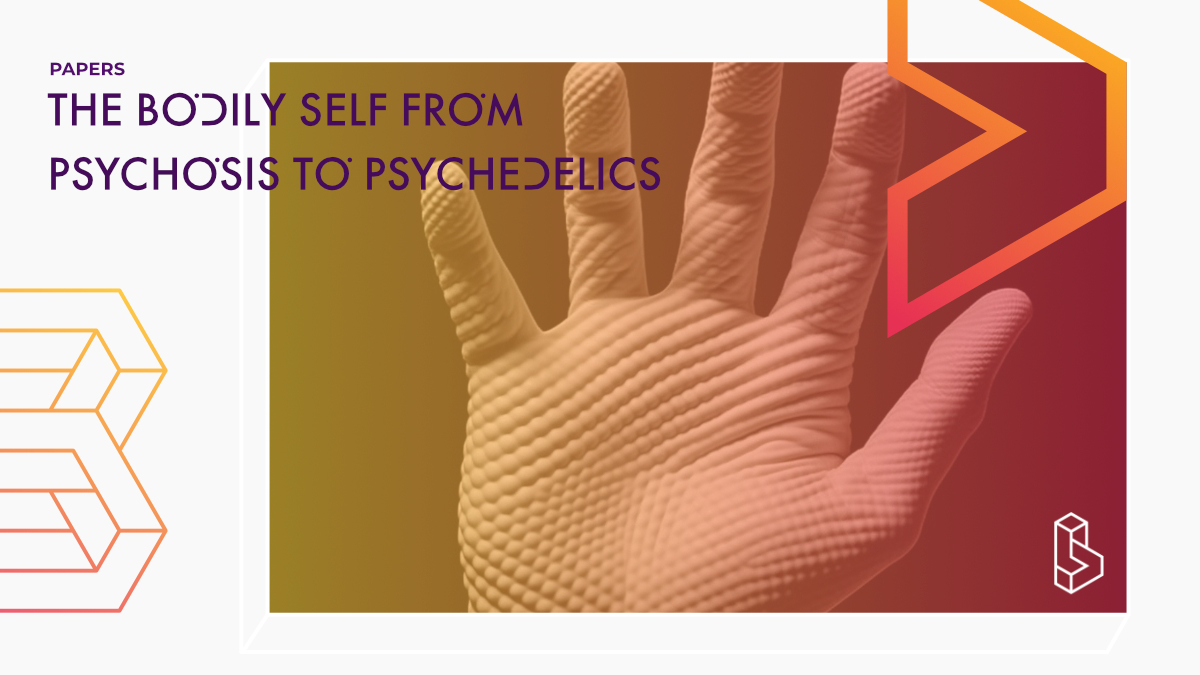This experimental study (n=75) investigates the impact of psychedelic and psychiatric experiences on the sense of self. It finds that patients with psychosis exhibited reduced Body Ownership and Sense of Agency, while participants with substantial psychedelic experiences reported enduring subjective changes to the sense of self, although no differences were found at the level of the bodily self when compared to control participants.
Abstract of The Bodily Self from Psychosis to Psychedelics
“The sense of self is a foundational element of neurotypical human consciousness. We normally experience the world as embodied agents, with the unified sensation of our selfhood being nested in our body. Critically, the sense of self can be altered in psychiatric conditions such as psychosis and altered states of consciousness induced by psychedelic compounds. The similarity of phenomenological effects across psychosis and psychedelic experiences has given rise to the “psychotomimetic” theory suggesting that psychedelics simulate psychosis-like states. Moreover, psychedelic-induced changes in the sense of self have been related to reported improvements in mental health. Here we investigated the bodily self in psychedelic, psychiatric, and control populations. Using the Moving Rubber Hand Illusion, we tested (N=75) patients with psychosis, participants with a history of substantial psychedelic experiences, and control participants to see how psychedelic and psychiatric experience impacts the bodily self. Results revealed that psychosis patients had reduced Body Ownership and Sense of Agency during volitional action. The psychedelic group reported subjective long-lasting changes to the sense of self, but no differences between control and psychedelic participants were found. Our results suggest that while psychedelics induce both acute and enduring subjective changes in the sense of self, these are not manifested at the level of the bodily self. Furthermore, our data show that the bodily self-processing, related to volitional action, is disrupted in psychosis patients. We discuss these findings in relation to anomalous self-processing across psychedelic and psychotic experiences.”
Authors: Amir Harduf, Gabriella Panishev, Eiran V. Harel, Yonatan Stern & Roy Salomon
Summary of The Bodily Self from Psychosis to Psychedelics
The sense of self is composed of different levels or models, which are subserved by different neural systems, and is manifested as a robust and unified phenomenological experience in neurotypical states. Altered states of consciousness, such as psychosis and psychedelic states alter this experience.
Schizophrenia patients show deficits across different levels of the self, including narrative, social, and bodily models of the self. This may be due to abnormal predictive sensorimotor processes that blur the demarcation of self-generated sensations and drive self-deficits in psychosis.
Find this paper
The Bodily Self from Psychosis to Psychedelics
https://doi.org/10.1038%2Fs41598-023-47600-z
Open Access | Google Scholar | Backup | 🕊
Cite this paper (APA)
Harduf, A., & Salomon, R., Dr. (2023, May 15). The Bodily Self from Psychosis to Psychedelics. https://doi.org/10.31234/osf.io/5e4q6
Study details
Participants
75
Humans

